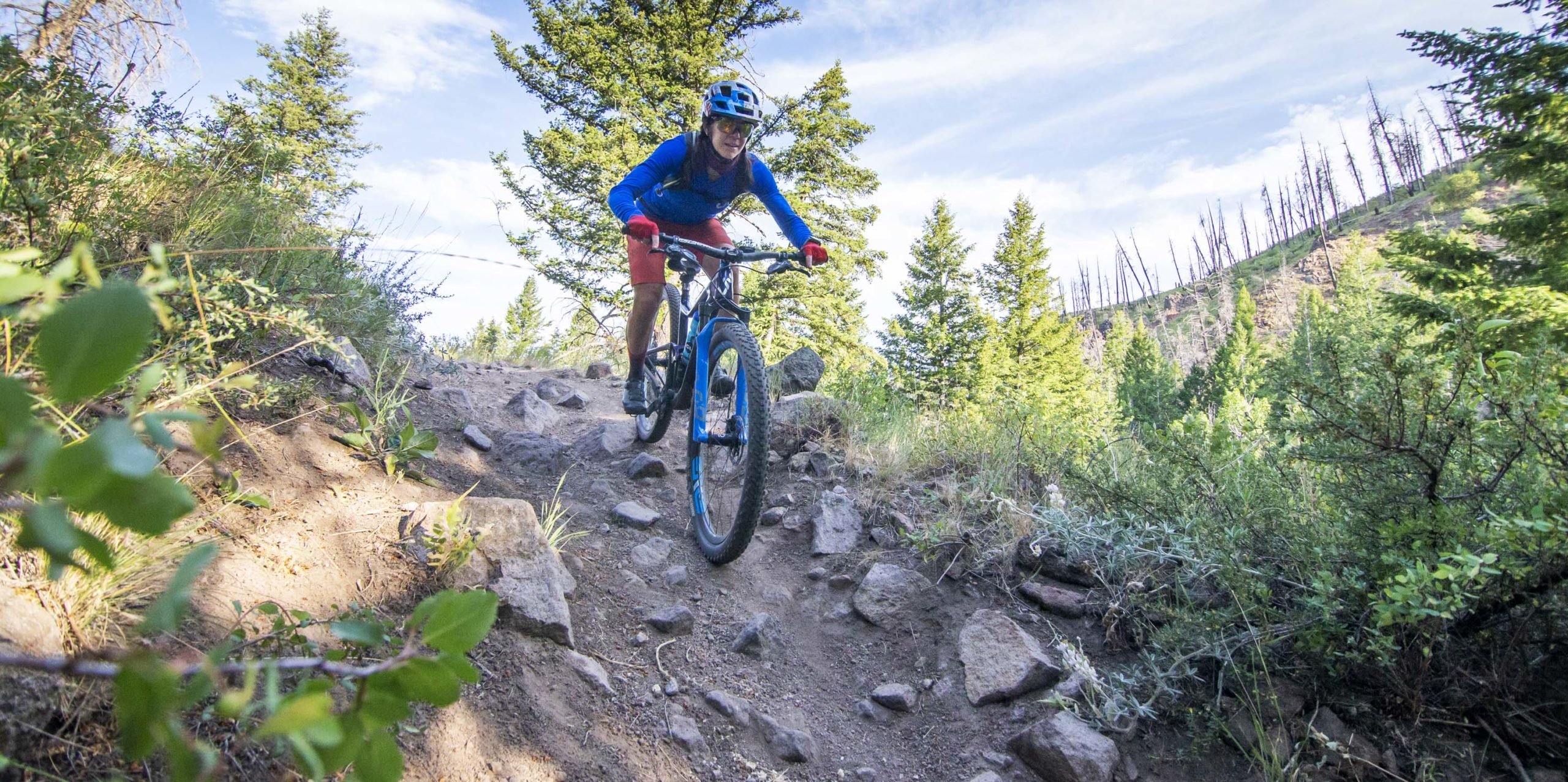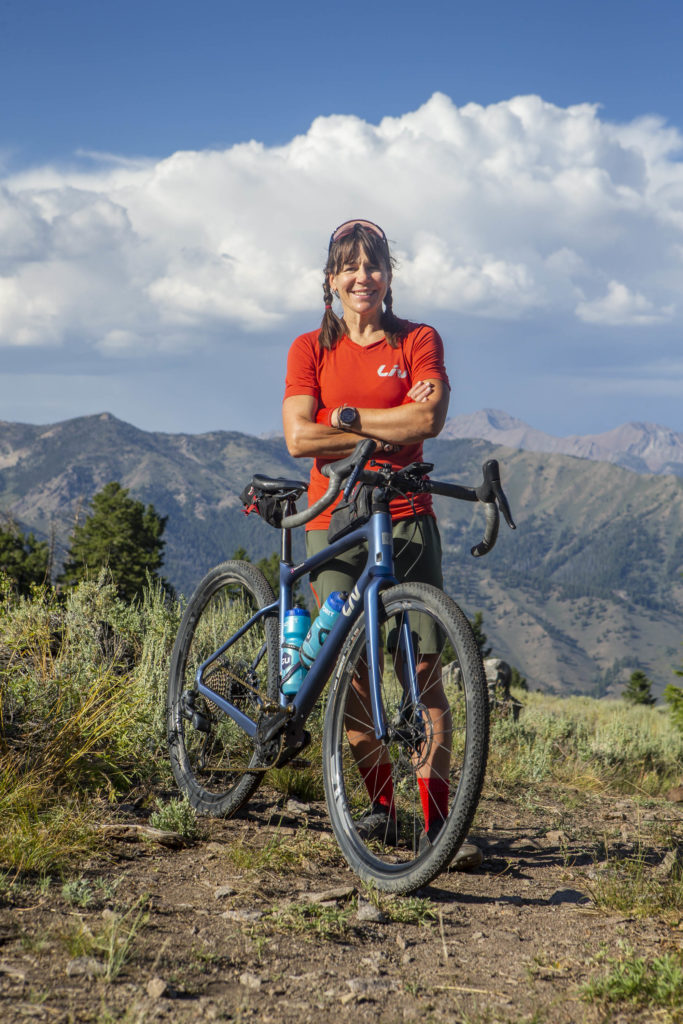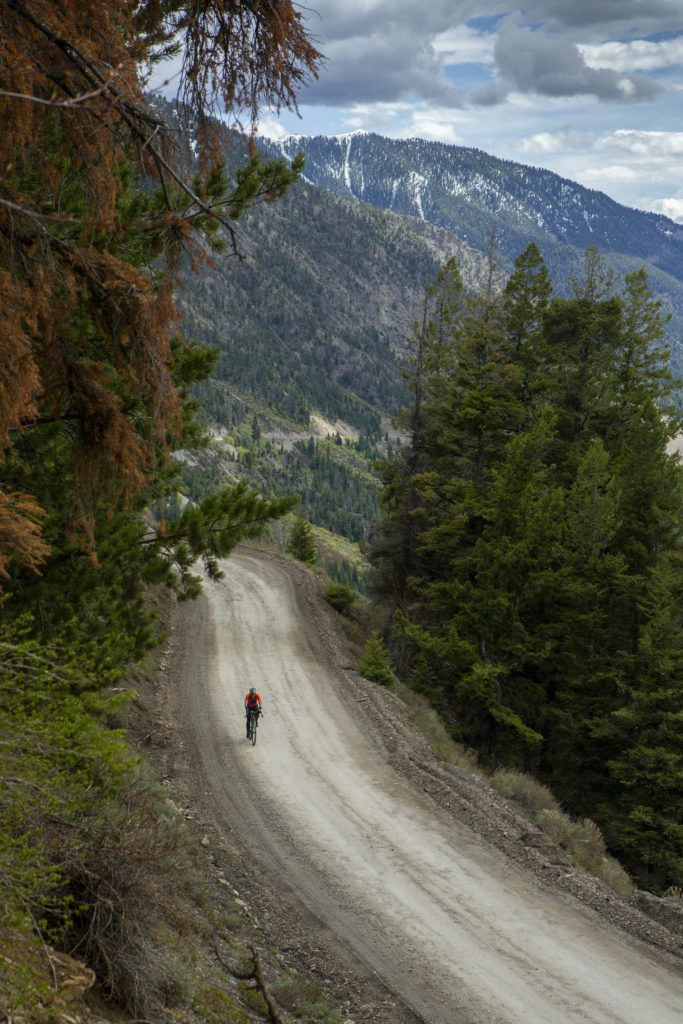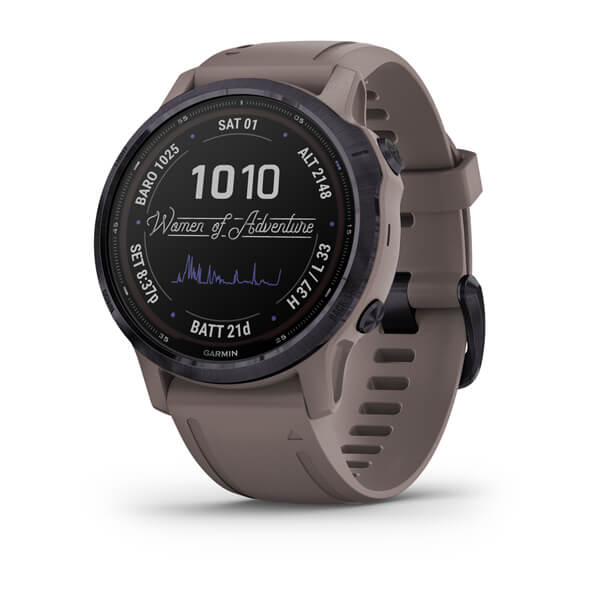
Q & A: Rebecca Rusch
Adventure athlete, World Champion, best-selling author, Garmin woman of adventure and so much more. Rebecca Rusch is usually on the move, and there’s a good chance it’s on two wheels. But what has she been up to while the world has come to a halt? Spoiler alert: turns out she hasn’t stopped, just altered her plans a bit. We caught up with her to see what she’s been up to.
Garmin: We’re all looking for hope and ways to cope these days. Are there any new discoveries or habits you’ve picked up to rejuvenate during these weird times?
Rebecca Rusch: During this fragile and stressful time, now more than ever, I need to support my parasympathetic nervous system…this means prioritizing sleep, turning off digital devices, gardening, playing music, playing with my dogs. All of our senses are on overload, so taking time to turn the dial down on a regular basis is helping me manage stress and be productive and strong. I just got the new fēnix 6S Pro solar and for the first time I am using features like sleep and stress tracking and I’m loving being able to see in real time the effect of my habits. Habits like journaling, meditation, stretching are not new to me, but I’m prioritizing them more because I feel the need for it. I’m also training with a coach and a regular training program because I respond to the structure and the accountability and know that when I take care of my physical health, then emotional health follows.
G: For someone who normally has a packed travel and event schedule, was there a silver lining for you being grounded for a bit? What makes Idaho such a special place for you?

RR: I am loving being home with my husband, dogs and in the mountains of home. Idaho is special to me because of the vast amount of open space and public land. I’ve spent the time at home riding, exploring my backyard and really focusing on cherishing home, health and family. I guess I could say that being grounded physically has allowed me to become more grounded emotionally and really spend time reflecting and prioritizing what is important to me. When we are all able to travel again, I know I’ll be far more selective and careful about not being away from home so much.
G: One of the themes you live by is “give equals get.” Can you tell us how this tenet led to reimagined virtual events like Giddyup for Good?
RR: I launched the Giddy Up Challenge over Memorial Day because I needed motivation to get back to prioritizing my fitness and training. I also had a strong desire to feel like I was doing something proactive to help our world recover from the pandemic. I knew if I felt this way, so did other people. Give = Get is one of the equations I use to guide me and my choices. Almost all of my rides and projects now have a giving back aspect. The bike and the outdoors are gifts that have changed my life and I feel a deep responsibility to share those gifts with other people. After I rode the Ho Chi Minh Trail, I realized I could use my bike for more and launched the Be Good Foundation in my father’s honor. The foundation’s mission is to use the bike as a catalyst for healing, empowerment and evolution, so now all of my rides and projects have a Be Good aspect to them and the theme of Give = Get always delivers. I get so much joy and inspiration from sharing the gifts of the bike with people around the world.
G: How many riders participated and what was the total raised for COVID relief?
RR: The Giddy Up challenge was a huge success with over 900 riders from 11 countries. Collectively, we raised over $135,000 for COVID-19 relief through the Be Good Foundation.
G: Were there any other surprising outcomes from that challenge?
RR: Surprising outcomes were the number of riders worldwide who participated, how connected I felt to the cycling and running communities and how the event rejuvenated my hope for what good we can do collectively. You wouldn’t think that a bunch of people riding uphill on the same weekend would be that impactful, but it really was one of the things I’m most proud of…the amount of positive energy that was generated and the amount of money raised to heal our world was mind blowing.
G: You love welcoming riders to your backyard for Rebecca’s Private Idaho, so it had to have been hard to pivot to virtual this year. Can you tell us how riders can still gain a sense of community and connection with the RPI Challenge?
RR: Here’s one thing: I’m not calling RPI 2020 a virtual event, because it is a REAL event and you can feel that. It’s just happening in a reimagined way! I wasn’t willing to cancel RPI for 2020 because I was not willing to let go of my goals to connect people via the bicycle and ride with purpose for the Be Good Foundation. Instead I took what I learned from the Giddy Up Challenge and created a version of RPI that still connects community, presents a lofty goal to motivate riders and will fundraise this year for organizations that are doing work to increase diversity and inclusion in cycling. So, we have the same goals and just a different execution. Instead of gathering as a big group in Idaho, we are all riding from our own back yards.
The sense of community that we all love about events has actually been expanded via the RPI Challenge member program. For 8 weeks leading up to the event, I’ve been sharing pro tips, training, nutrition, live webinars, and access to my group of experts to help people train, learn, and engage with each other. Instead of just a one weekend event, we’ve been training together as a team and that has been a really rewarding and motivating experience. We also saw with Giddy Up, that during event weekend, social media was on fire with riders around the world sharing their routes and their experiences. I can’t wait to see that happen again with RPI. What we saw with Giddy Up Challenge is that what may have typically been an Idaho event, is now a worldwide event. The really beautiful part is that this type of hybrid event format is perhaps even more impactful than an in person one because now more people have access to ride RPI than ever before and our community is growing.
G: And what about the competition part that’s missing from so many virtual events?

RR: The way we designed RPI Challenge in this hybrid format is for riders to execute their own RPI route that they design at home to meet the distance and elevation totals for their chosen RPI route. We have routes from 20 miles to the 3-day stage race. With these criteria, saved via Strava, on the exact event day, we will be able to rank riders as we would a typical race. We will have podium winners and be awarding the coveted RPI custom Idaho cowboy hats as we always do. This is a different type of event that has never been done before. By riding on the same day and on routes that are all the same distance and elevation total, we can keep score as you would an in-person event. There will be a leaderboard, prizes and even an awards party. I am keeping everything we love about events and executing those things, but without a large group gathering. The global pandemic has created the need for creativity, and I can’t wait to see if our defending champions are able to hang onto their hats (literally), or if we will see new riders take the top steps.
G: This takes a little planning for riders to find suitable routes to fit the distance, elevation and gravel profile for the event they sign up for. Any tips?
RR: For any RPI Challenge member, we created a program to help riders design an RPI route via Garmin Connect at home. We hosted a webinar with instructions on how to build your own route and it’s really easy!
I have found that once people know how to build a route via Garmin Connect, they get addicted to the platform and it has opened up the door for more exploration at home! We also have a route sharing feature on the RPI Member site so riders can share their planned routes with other people in their area. The goal is to get people designing routes, sharing them with their friends and the byproduct is learning how to find new places to ride!
G: We did our best to make a watch that outlasts even your longest rides. What do you think so far of the new solar charging fēnix 6S Women of Adventure edition?
RR: I am so addicted to this watch. I will admit that I’ve been a hold out with smart watches for various reasons. Often times they were too complicated and battery life seemed to always be an issue. I’ve used Garmin watches for a long time, but never as my main tool in the field. I relied instead on a handheld navigational device or cycling navigational device. The new fēnix 6S Pro Solar has really blown my mind. I’ve been using it for long overnight hiking, bike packing adventures and shorter runs. The navigational tools are far better than I expected, and I never have to charge the device. I love the heart rate feature, so I don’t have to always wear a heart rate strap. I’ve also really become addicted to the sleep tracking and stress level features. I’m now using these tools to improve my recovery habits and it’s making a big difference. Syncing is super easy and the Garmin Connect app tells you everything you need to know. Thank you, Garmin! I’m so incredibly excited about this amazing tool.
G: Once the world heals and we’re all free to roam again, are there any events or travel you plan to pursue?
RR: If we are able to travel by February 2021, I will head back to the Iditarod Trail Invitational in Alaska and have signed up for the 1000-mile expedition. I’ve completed the brutal 350-mile course twice now, as preparation for the full-length course. I also plan to head back to Laos for my annual pilgrimage and MTBLAO trip on the Ho Chi Minh Trail. For now, I’m pretty happy exploring Idaho and training for the RPI Challenge, which has helped me stay really fit and focused. I know that will pay off when I head back to events outside my home state again.
And!!! Registration for Rebecca’s Private Idaho 2020 is still open! What are you waiting for? https://www.rebeccasprivateidaho.com/





